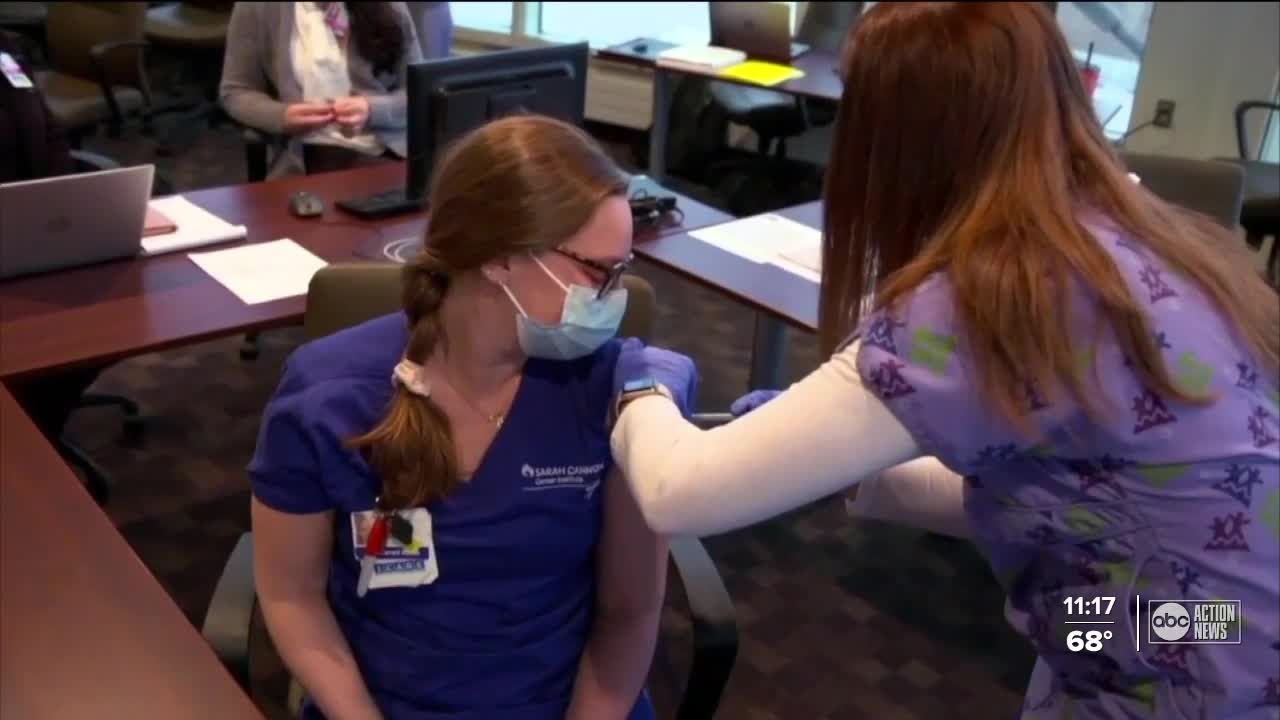TAMPA BAY, Fla- — For over a year now, frontline workers have been under extreme stress, fighting covid 19 and saving lives, making them more susceptible to Post Traumatic Stress Disorder.
And mental health experts predict the psychological pain for these emergency responders will only get worse, if they don't get the help so many desperately need.
"I've gained at least 20 pounds. I struggle with sleeping. I get four to five hours of sleep at night. I feel myself worn out," admits Anthony Almojera, who's a frontline worker and paramedic lieutenant.
Anthony has been saving lives for over 17 years, but when this pandemic hit, he hit a wall.
"I kept getting angry that I could not perform to a certain level like I had done in the past and give patients 100% of whatever I could offer. It got to the point where my gas tank was empty," he explained.
And he's not alone.
According to the National Library of Medicine, during this pandemic health-care workers in emergency care settings have been at high risk for PTSD, anxiety, depression, trouble sleeping, frequent witnessing of death and trauma, and long working hours.
Other statistics are alarming as well.
"EMS providers have the highest rate of suicides per capita than most 911 providers. The second highest rates of divorce. The highest rates of substance abuse. So we were always riding the lightning to begin with. And now you add the pandemic and other things happening throughout the country," he said.
So Anthony strongly recommends first responders talk to someone before its too late as he's witnessed that first-hand.
"We also had three people, two EMT's and a lieutenant commit suicide in the last few months. So it weighs heavy on us," he said.
And Anthony believes everyone, especially those on the frontlines, cannot ignore their mental health.
"You have to do this. You have to take some type of 'me time' that involves coping mechanisms and stress release," he said.
Below are some free resources:
Safe Call Now is a confidential, 24-hour hotline, specifically designed for Emergency Services Personnel and their families.
If you're interested call: 206-459-3020.
The Cohen Veterans Network has created CVN Frontline, providing mental health resources to first responders and frontline workers in Florida for free.
Online mental health resources are at their website here.
And the organization is conducting in-person sessions at its local office:
The Steven A. Cohen Military Family Clinic at Aspire Health Partners:
4520 Oak Fair Blvd.
Suite 100
Tampa, FL 33610
813-542-5500
And NAMI, The National Alliance on Mental Illness in Hillsborough County joined the First Responders First Initiative to support frontline healthcare professionals facing mental health issues.




